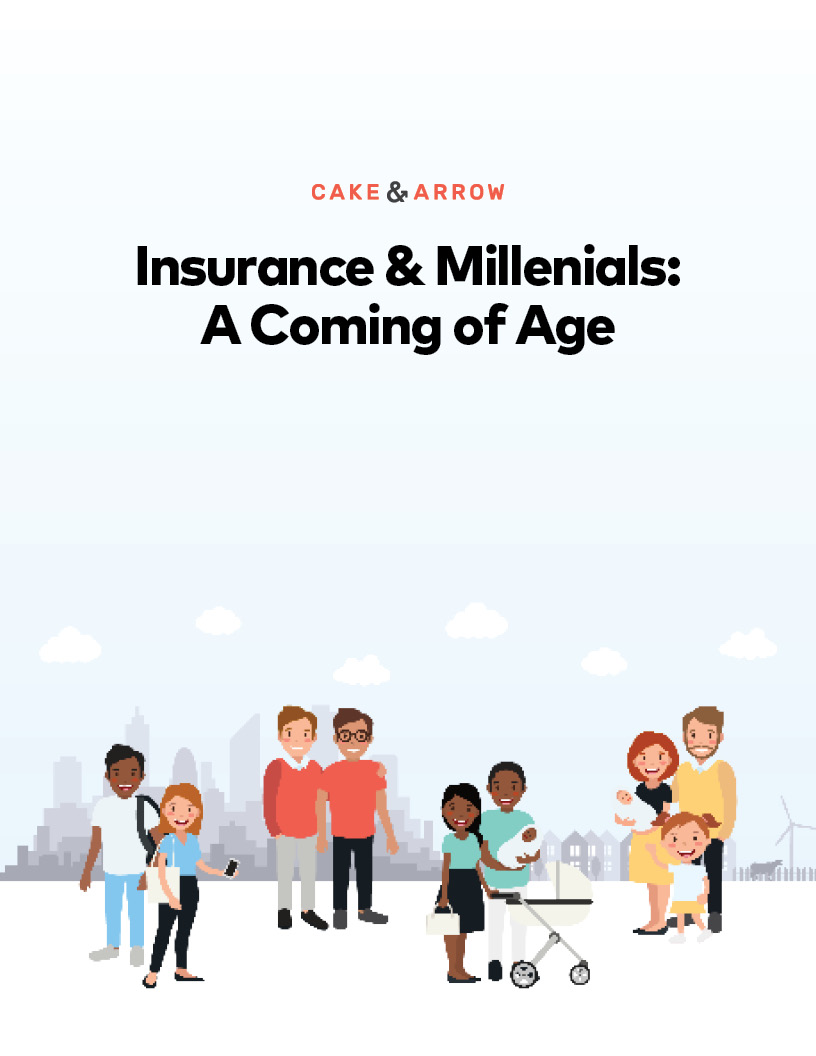
As is the case whenever attempting to characterize any large group of nameless, faceless people, when talking about Millennials, it’s easy to speak in sweeping generalizations. Millennials live in cities. Millennials are highly educated. Millennials are tech savvy. And then of course there are the generalizations that also double as insults. Millennials are entitled. Millennials are narcissistic. Millennials are lazy. While all or none of these things may be found to be true about any particular Millennial, they are certainly not true about all Millennials. As the largest and most diverse generation in recent history living in a country characterized by political bipartisanism and deep geographical and cultural divides, its hard to say any one thing that would be true for all Millennials.
And still, there they are, about to become the largest generation in history. Surely something must be said of them?
Earlier this week we published the first installation in a series of ongoing research and other related content we will be doing on Millennials in the coming months. Our initial research, in which we surveyed over 300 Millennials about their values, behaviors, and mindsets, is an initial attempt at painting a fuller, more nuanced view of Millennials than that which is typically accepted by the insurance industry and society at large–one which can, we hope, serve as a jumping off point for insurers as they innovate and design new insurance products that resonate with Millennials.
White Paper
Insurance & Millennials: A Coming of Age
By 2019, Millennials will number 73 million, and will have taken over the Baby Boomers as America’s largest living generation. In other words, Millennials are about to rule the world. Is the insurance industry ready?

To this end, we used the data we uncovered in our research to divide the Millennials we surveyed into four personas. Upon our initial analysis of the survey responses, the significance of age and education level immediately struck us. Segmenting the data through this lense, we found notable differences and trends: where Millennials live, their median incomes, their family statuses, as well as their priorities, values, and attitudes about the future varied widely based upon age and education level. Using this insight, we decided to split Millennials into four groups: older Millennials (those born between 1981-89) with a four-year college degree, older Millennials without a four-year college degree, younger MIllennials (born between 1990-96) with a four-year college degree, and younger Millennials without a four-year college degree – labeling them Lampooned MIllennials, Forgotten Millennials, Aspiring Millennials, and Precarious Millennials, respectively. Here’s what we summarized about these groups:
1. The Lampooned Millennial
28-37, Urban, $77k, 4 year college degree
The oldest, most educated, and most employed of the Millennials we surveyed, these Millennials most closely resemble the stereotype of the Millennial depicted in the media and popular culture. They are highly educated, they live in cities, they rent, they have careers, they have higher incomes, and spend a lot on going out to eat and entertainment. And with more disposable income, they are better equipped to save for retirement and plan for the future. They are also highly likely to define themselves by where they live and identify stark contrasts between themselves and their parents. Contrary to popular belief, however, they care about traditional things. Top on their list of priorities is family, retirement, and career advancement. And while the majority rent, many own homes or would like to in the future. These Millennials are trying to balance the concerns of the future (i.e. retirement, providing for family etc.) with enjoying their lives in the present. While they want to have meaningful careers and families, they also want to travel, pursue their hobbies, and invest in self improvement. In the long term they place health and well being above career or material success.
2. The Aspiring Millennial
21-27, Urban/Suburban, $46k, 4 year college degree
Equipped with a college education and substantial student loan debt to back it up, these Millennials are early in their careers and live in or near urban centers, with some still living at home while they get their careers off the ground. They don’t have children, they are unlikely to be married, and aren’t thinking much about the long-term future yet. They are primarily concerned with work-life balance, career advancement and their mental health. And while these Millennials may still be living paycheck to paycheck, they are generally optimistic about the future, and are working hard to become more established in their careers before making long term commitments to family, property ownership and retirement planning.
3. The Forgotten Millennial
28-37, Suburban/Rural, $42k, high school diploma/some college
Unlike the “lampooned millennial” these Millennials do not fit the millennial stereotype. They lean more suburban/rural than they do urban/suburban and are a mixed bag when it comes to traditional norms. They are less white than lampooned Millennials and less likely to be married, to own homes, and to have full time employment, but are more likely to have children and to be religious. They are also generally less concerned with advancing their careers and planning for the future, and more concerned with getting by in the present, the majority claiming they are struggling to pay their bills or are just breaking even. Forgotten Millennials are immediately concerned with work-life balance and providing for their families, and while they are trying to save for the future and would like to do things like travel and spend more time on their hobbies, they are doubtful even about their ability to ever afford retirement (42 percent claiming it is very unlikely they will ever retire).
4. The Precarious Millennial
21-27, Suburban/Rural, $37k, high school diploma/some college
Less educated, more financially strapped, and much more likely to have children than aspiring Millennials, this group also skews suburban/rural rather than urban/suburban and is more male than any other group. Unlike the more educated Millennials their age, they rate education and career before family as their top priorities, with religion coming in last. Many consider their educations their most valuable investment to date. While they are struggling to get by, and are concerned about things like affording basic expenses and mental health, they are hopeful about their futures, with many feeling that more education is key to their future success. The majority plan on someday getting married, having children, owning homes, and retiring.
Application to Insurance
It’s no surprise that when it comes to innovation in insurance, the industry has mostly concerned itself with the Lampooned Millennials–they are the industry’s Millennial monolith. These Millennials are, after all, finally at the point in their lives when they are making the life decisions that insurance has typically circulated around – marriage, kids, property ownership, etc. – and they are also the Millennials with the most disposable income. But if there is anything we learned from our research, what is true for the Lampooned Millennials isn’t true for all Millennials, or even most. More than half of the Millennials we surveyed don’t fall into this group at all and the majority are struggling financially, do not necessarily live in urban environments, don’t have children and almost all of them have needs that are not being met by the insurance industry, or elsewhere. Turning a blind eye to these Millennials serves no one, and in doing so, the insurance industry is most certainly leaving value on the table, both for themselves, and Millennials at large.
To learn more about what our research uncovered about Millennials, download our latest white paper.